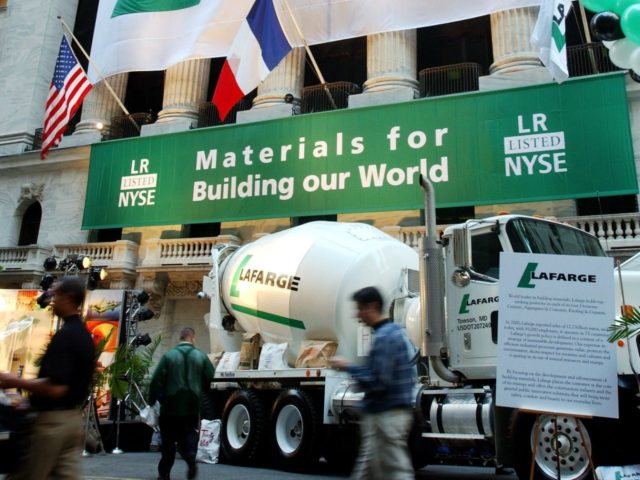A “crude” petrol bomb has been discovered planted beneath a lorry belonging to a French-Swiss cement firm that publicly offered to supply the construction of U.S. President Donald Trump’s southern border wall.
When LafargeHolcim, the world’s largest concrete supplier, said they were ready to help build the wall on the Mexican border in March, French President Emmanuel Macron attacked them and the local government in Paris voted to boycott the firm.
Foreign Minister Jean-Marc Ayrault instructing them to “think carefully” about the decision. “It [Lafarge] should reflect upon what its interests are. There are other clients who will be stunned by this,” he added.
Around six months later, at 9 am this Thursday morning, workers discover the petrol bomb attached to a “crude” detonator at a cement works in the northeast of the French capital.
Bomb disposal experts arrived at the site, police cordoned off the area, and nearby buildings were evacuated. “It was workers who discovered the bottles during their service on Thursday morning,” a source close to the investigation told Le Point.
The incident comes as anti-terrorism police investigate the discovery of several gas canisters and a cell phone detonator in western Paris on Saturday, but a source said there was no apparent link between the two.
Six people are in custody over the canisters placed in the hallway of a building in the wealthy 16th district, including two who were on watchlists for Islamic extremism.
In September last year, five full gas canisters were found in a car near the Notre Dame cathedral in central Paris. Several women, who had received instructions from the Islamic State group to carry out an attack, were arrested.
France has suffered a series of jihadist attacks since 2015 which have left 241 people dead.
Lafarge is under investigation over claims it indirectly funded Islamic State and other armed groups in Syria in order to keep a plant running in a war zone. In April, the firm’s chief executive Eric Olsen stepped down following an internal investigation.
The company admitted it had resorted to “unacceptable practices” to continue operations at a now-closed cement factory in northern Syria in 2013 and 2014 after most French groups had quit the war-torn country.
AFP contributed to this report.

COMMENTS
Please let us know if you're having issues with commenting.